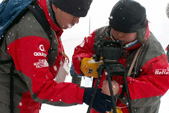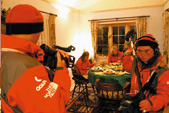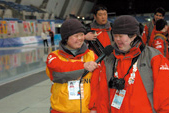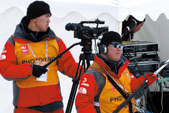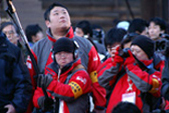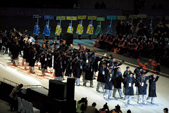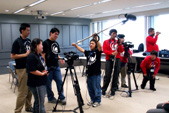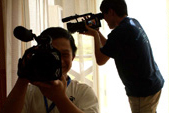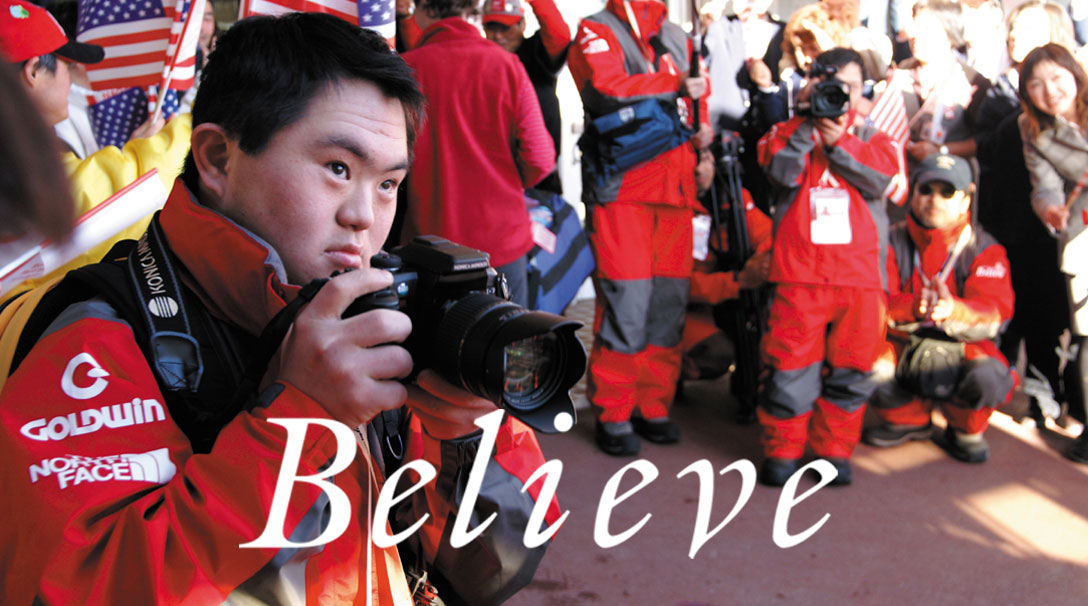At the 2005 Special Olympics World Winter Games in Nagano, a film crew of nine made their debut as part of the media. A crew of intellectually disabled people filmed athletes with intellectual disabilities. This feat, implausible to those who do not know them, all began with believing.
In February 2005, the world media assembled in Nagano.
Among them was our 9-person crew.
Many documentaries have been made about people with intellectual disabilities. What if the disabled themselves were to pick up cameras and microphones to interview subjects and make a film? It might seem impossible, yet the 9-person Believe crew did just that. In February 2005, when the international sports festival for people with intellectual disabilities convened in Nagano, they recorded their fellow Special Olympics athletes through their eyes and in their own words. This film blends a record of their journey to that moment with images they captured to convey this experience.
200 days of struggling uphill. 200 days of laughter and tears.
Getting there was by no means easy. The crew practiced over 200 days from the time they first picked up video cameras and tripods. But this is by no means a tearful melodrama. If anything, the film overflows with laughter and with joy. It is filled with hope and kindness. The crew is all business when interviewing the Japanese Prime Minister, Junichiro Koizumi or retired sumo champion, Konishiki. Each member shines with the joy of taking on a new challenge and confidence borne of taking responsibility and achieving a goal.
“It is not their disability that holds them back.
It is their society that believes they can't and in so doing, holds them back.”
This was the heart of Special Olympics founder Eunice Kennedy Shriver speech at the Special Olympics Games in North Carolina. It was the first Special Olympics director, Oguri Ken’ichi had witnessed and her words have stayed with him ever since. Since then, Oguri has filmed people with intellectual disabilities, making ABLE (2002), which won Best Documentary Film in the Mainichi Film Competition and HOST TOWN (2004), set against the backdrop of the World Summer Games in Ireland in 2003. In this 3rd film in the series, Oguri chose to make a film with his former subjects. He was inspired by a similar crew he met at the 1999 Special Olympics. That crew films material for a monthly television program and operates the cameras and equipment in a studio. Working independently, they believe in themselves. Their community supports and believes in them, too. This belief is then reciprocated by the crew who believes in those without disabilities. This core of belief became the touchstone for this film.
Eleven film professionals signed on to coach the nine-member crew. The film was scored by internationally renowned conductor, Kobayashi Kenichiro and executive produced by Hosokawa Kayoko, Director of Japan's Special Olympics. The film was made possible through modest individual donations to the ABLE Production Committee.
